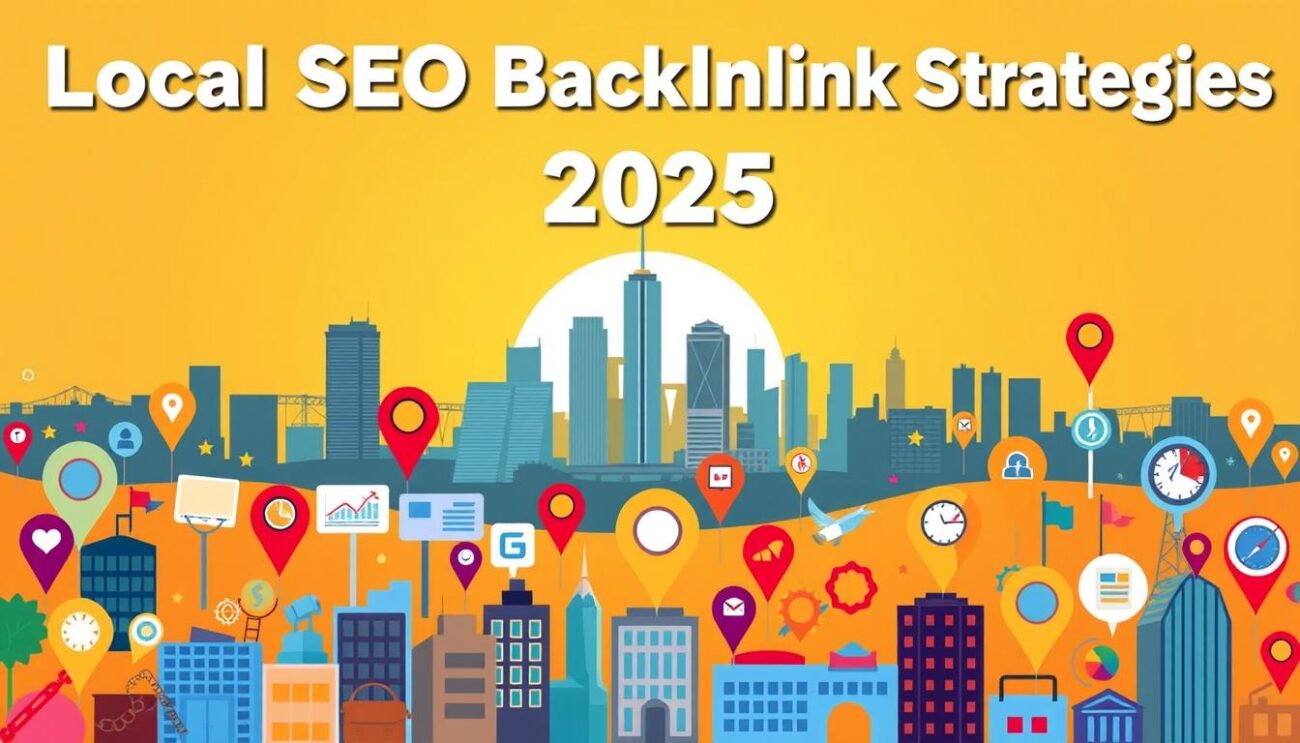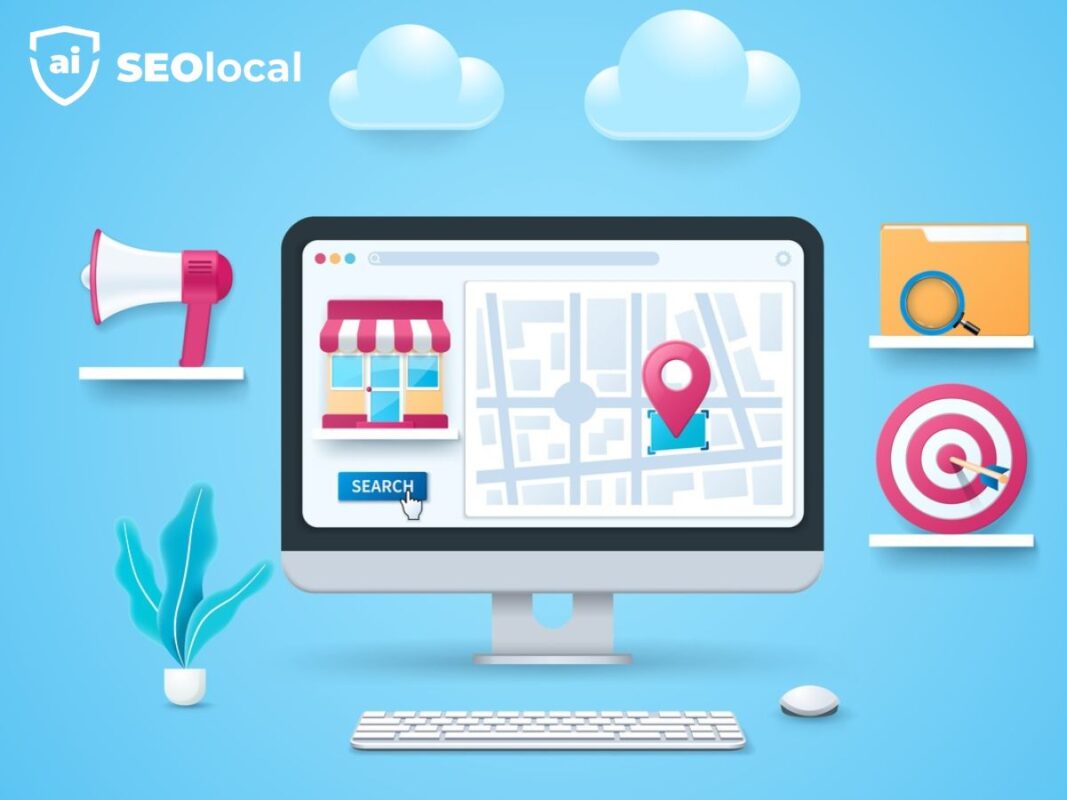- Advanced Local SEO Strategies
- Fundamentals of Local SEO
- Google Business Profile (GBP) Optimization
- Local Keywords and Content Strategy
- Local Link Building
- Local Paid Advertising
- Local Search Ranking Factors
- Local SEO Best Practices
- Local SEO Tools and Analytics
- Local Social Media Marketing
- Online Reviews and Reputation Management
- Technical SEO for Local Businesses
How to Get Listed in Local Directories Effectively

Accurate online listings are non-negotiable for modern businesses. A Neustar report reveals companies lose $10 billion annually due to outdated or incorrect information. With 53% of U.S. consumers searching for nearby services monthly, your digital presence directly impacts revenue.
Consumers prioritize reliability. BrightLocal found 39% abandon businesses with address errors. Inconsistent details across directories create confusion, damaging trust. This isn’t just about visibility – it’s about credibility in competitive markets.
Proper directory management strengthens SEO and customer reach. Search engines cross-reference business data to verify legitimacy. Aligning your listings improves local search rankings, making your services easier to discover during critical decision moments.
Key Takeaways
- Businesses lose $10 billion yearly from inaccurate online listings
- 39% of customers switch providers due to address errors
- Over half of consumers search for local services monthly
- Consistent directory details boost search engine trust
- SEO performance ties directly to listing accuracy
Understanding Local Directories and Citations
Citations serve as the backbone of your online presence in local search results. These digital references confirm your business details across platforms, acting like digital fingerprints search engines use to verify legitimacy.
What Are Local Listings?
Local listings appear on platforms like Yelp or Google Maps. They display your business name, address, phone number (NAP), and operational details. Consistent NAP data across online directories prevents confusion and builds credibility with customers.
There are three main citation types. Directory listings include niche sites like Thumbtack. Map citations cover Google and Apple Maps. Social mentions occur on platforms like Facebook. Each reinforces your location accuracy for search engines.

The Role of Citations in Local SEO
Search engines cross-check citation details to validate your business. Mismatched information lowers rankings because inconsistencies suggest unreliability. A Moz study shows 56% of local ranking factors relate to citation quality.
Accurate listings improve visibility in “near me” searches. They also drive referral traffic – 87% of consumers check online directories before visiting businesses. Unified citations create a trustworthy digital footprint that boosts both SEO and customer confidence.
Essential Elements for Accurate Business Listings
Precision in your business details forms the bedrock of online visibility. Even minor discrepancies in your name, address, or phone data can confuse customers and search algorithms. Let’s break down the non-negotiable standards for maintaining trustworthy listings.
Business Identity Matters
Your registered business name must mirror physical signage and legal documents. Avoid adding locations or keywords like “Chicago Bakery” unless operating multiple branches. Facebook allows location modifiers, but other platforms require exact matches.
| Element | Correct Format | Common Errors |
|---|---|---|
| Business Name | Joe’s Diner (matches store sign) | Joe’s Best Diner Chicago |
| Address | 123 Main St Suite 4B | 123 Main St #4B |
| Phone | (312) 555-0190 (local) | 1-800-555-0190 (unnecessary toll-free) |
Phone Number Best Practices
Use a local area code unless serving national clients. Hotels or delivery services may need toll-free numbers. Never list personal cell numbers – dedicate one line for business calls. Update this information simultaneously across all platforms.
Search engines cross-reference your details with government databases and customer reviews. Mismatched information triggers ranking penalties. Consistent business information builds credibility with both algorithms and potential clients.
Optimizing Your Google Business Profile
Your Google Business Profile acts as a digital storefront for local searches. Proper optimization ensures customers find accurate details while boosting visibility in map results and local packs.
Strategic Category Selection
Choose specific categories that mirror your core services. Google prioritizes precision – “Veterinary Clinic” outperforms generic “Animal Services”. Select up to 10 categories, but lead with your primary offering.
- Update categories when expanding services
- Avoid duplicate or overlapping selections
- Review competitors’ classifications for insights
Crafting Impactful Descriptions
Use the 750-character description field to highlight unique differentiators. Focus on customer benefits rather than promotional language. Include service areas, certifications, or community involvement.
- Place keywords naturally in first 250 characters
- Mention landmarks for location context
- Update seasonally with relevant offerings
Link your profile to a dedicated landing page – not third-party sites. Google favors direct connections to your website. Regular photo updates (weekly) increase engagement by 35% according to BrightLocal data.
How to Get Listed in Local Directories
Structured processes save time while maintaining listing accuracy. Begin by preparing a master document with your exact business name, address, phone number, website URL, and service descriptions. This reference sheet prevents inconsistencies across platforms.
Start with data aggregators like Neustar Localeze and Data Axle. These services distribute your information to multiple directories simultaneously. Tools like BrightLocal’s Citation Builder automate submissions to 50+ platforms through a single dashboard.
- Create accounts with preferred citation services
- Upload your verified business details
- Select target directories (Yelp, YellowPages, industry-specific platforms)
- Review automated submissions for accuracy
Prioritize core platforms first – Google Business Profile and Bing Places account for 82% of local search visibility. Industry-specific directories follow, targeting niche audiences. Restaurant businesses should claim OpenTable listings, while contractors need Houzz profiles.
Maintain a submission tracker noting completion dates and login credentials. Update this document whenever you expand services or adjust operating hours. Consistent monitoring prevents outdated listings that confuse customers and algorithms.
Creating Consistent NAP Information for Local SEO
Uniform NAP details form the cornerstone of local search credibility. Search engines cross-verify your name, address, and phone number across platforms to confirm legitimacy. Mismatched data triggers ranking penalties and confuses potential customers.
Common formatting errors sabotage visibility. Abbreviated street names (“Main St” vs “Main Street”) or phone variations (555-1234 vs 5551234) create technical inconsistencies. These discrepancies make algorithms question your business authenticity.
| Element | Correct Format | Problematic Version |
|---|---|---|
| Business Name | The Book Nook | Book Nook LLC (Chicago) |
| Address | 450 Maple Road, Suite 12 | 450 Maple Rd #12 |
| Phone | (415) 555-0175 | 415-555-0175 |
Implement these strategies to maintain accuracy:
- Store official NAP details in a master spreadsheet
- Use full address spellings without abbreviations
- Update all platforms within 24 hours of changes
Audit your listings quarterly using tools like Moz Local or Whitespark. These platforms identify conflicting information across directories. Fixing inconsistencies improves local search results performance by 37% according to recent industry data.
Business information alignment becomes critical during expansions. Open new locations with distinct phone numbers and addresses. Consistent data builds algorithmic trust, enhancing visibility in search results over time.
Leveraging Data Aggregators and Directory Listings
Data aggregators power modern discovery for brick-and-mortar businesses. These systems verify and distribute your details to mapping services, GPS devices, and apps millions use daily. One update through an aggregator can correct information across 50+ platforms.
Leading services like Neustar Localeze and Data Axle act as central hubs. They cross-check your name, address, and phone number against government records. This verification reduces fraud risks while ensuring accuracy across digital touchpoints.

Submitting details to these systems eliminates manual directory updates. Foursquare’s merger with Factual in 2020 created a network covering 500 million devices. Your verified information reaches navigation apps, review sites, and search engines simultaneously.
Aggregators prioritize recent, consistent data. They flag discrepancies between your submissions and existing listings. Resolving these mismatches strengthens your credibility with both algorithms and customers.
Focusing on key aggregators saves time compared to individual directory management. Automated distribution reaches niche platforms and mainstream services alike. This approach ensures your details appear correctly in voice searches, car navigation systems, and mobile apps.
Regular updates through trusted aggregators maintain your digital footprint. As platforms pull fresh data monthly, consistent submissions keep your listings current. This streamlined process protects your brand’s accuracy across all discovery channels.
Maximizing Your Online Presence on High Authority Platforms
High-authority platforms dominate search engine results pages, often outranking individual business websites. Established directories like Yelp and industry-specific sites possess superior domain authority, making them critical for visibility. For example, searches for services like “plumbers near me” show directories occupying over half the first-page results.
These platforms benefit from years of search engine trust. Their strong backlink profiles and user-generated content boost rankings. A plumbing company in Middlesex, Massachusetts, might appear on Angi and BBB listings before their own website in local results.
| Platform | Domain Authority | Local Impact |
|---|---|---|
| Yelp | 94 | High |
| Better Business Bureau | 91 | Medium-High |
| Houzz | 89 | Industry-Specific |
Prioritize platforms matching your industry and service area. Analyze competitors’ profiles to identify high-value opportunities. Complete every field in directory profiles, using location-specific keywords naturally.
Regular updates to photos and service descriptions maintain relevance. Active profiles on three key directories can create multiple first-page search engine entries. This strategy increases click-through rates by 22% compared to relying solely on your website.
Focus efforts where customers actually search. Restaurants gain more from OpenTable than general directories. Track performance through Google Search Console to refine your platform selection over time.
Guidelines for Multi-Location and Multi-Department Businesses
Expanding your business footprint requires meticulous attention to digital details. Multi-location operations and complex organizational structures demand specialized approaches to maintain search visibility and customer trust.
Managing Separate Listings
Create distinct profiles for each physical location with unique addresses. Departments like hospital radiology centers or retail pharmacy branches qualify for separate entries if they:
- Operate with dedicated phone numbers
- Maintain separate customer entrances
- Offer distinct service categories
Chain stores should avoid location-based names except on Facebook. The platform blocks duplicate business names, requiring modifiers like “Walmart – Phoenix North”.
Aligning Names with Branding Requirements
Keep primary business names consistent across most directories. Legal names must match store signage and registration documents. Facebook remains the exception for multi-location management.
| Platform | Naming Rule | Example |
|---|---|---|
| Google Business Profile | Exact legal name | The Home Depot |
| Name + location modifier | Best Buy Tacoma | |
| Apple Maps | Legal name only | Starbucks |
Update all locations simultaneously when rebranding. Use centralized management tools to ensure uniform name formatting. This prevents algorithmic confusion during local searches.
Evaluating and Managing Your Online Citations
Maintaining accurate citations requires ongoing attention, not just initial setup. Regular audits catch outdated information before it impacts visibility. Schedule checks every six months using calendar reminders – consistency matters more than frequency.
Regular Audits and Updates
Update all listings within 24 hours when changing business hours or services. Delays create discrepancies that confuse customers and search algorithms. Focus on core platforms first, then expand to niche directories.
Tools for Citation Management
Free tools like Google Search Console monitor citation health. Paid services automate updates across directories, but avoid unnecessary subscriptions. Scammers often push monthly fees for minimal work – verify service value before committing.
Preserve login credentials in secure systems for quick access. Proper listings management ensures accurate citations, building trust with search engines and your community. Protect your digital footprint through strategic oversight, not constant revisions.
FAQ
Why is accurate NAP information critical for local SEO?
Consistent Name, Address, and Phone (NAP) details across platforms boost credibility with search engines like Google. Discrepancies confuse algorithms, hurting rankings in local search results. Ensure uniformity to improve visibility and attract potential customers.
How do business categories impact Google Business Profile performance?
Selecting precise categories helps Google match your services with relevant local searches. A mismatched category reduces visibility in search results. For example, a “vegan bakery” should avoid generic terms like “restaurant” to target the right audience.
What tools help manage online citations efficiently?
Platforms like Yext, Moz Local, and BrightLocal automate listings management. They distribute business information to directories, track inconsistencies, and update details across multiple platforms, saving time and ensuring NAP consistency.
Should multi-location businesses create separate listings?
Yes. Each physical location needs a unique Google Business Profile and directory listings. This ensures accurate local search results for customers near each branch. Avoid duplicate content but maintain branding consistency in business names and descriptions.
How often should I audit my online citations?
Conduct audits quarterly to catch outdated hours, incorrect phone numbers, or address changes. Regular updates prevent reputation damage and ensure search engines display reliable business information to potential customers.
Can social media profiles affect local search rankings?
While not direct ranking factors, platforms like Facebook and LinkedIn reinforce business legitimacy. Links from verified social profiles to your website improve domain authority, indirectly boosting SEO and local search visibility.
What role do data aggregators play in directory listings?
Aggregators like Factual and Neustar distribute business data to major directories (Yelp, Apple Maps). Submitting information once through these services ensures wider reach and reduces manual entry errors across platforms.
How detailed should my Google Business Profile description be?
Use all 750 characters to highlight services, unique selling points, and keywords. Avoid promotional language (“#1 in town”)—focus on clarity. Include location-specific terms to improve relevance in local search results.













